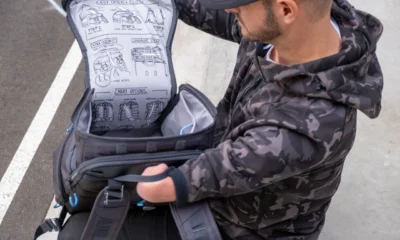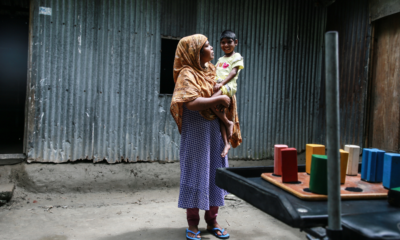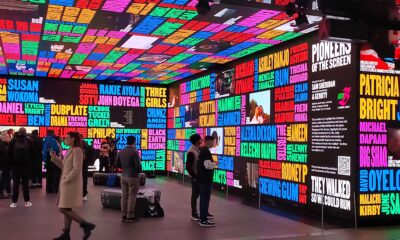Featured
Finding Love Online With a Disability
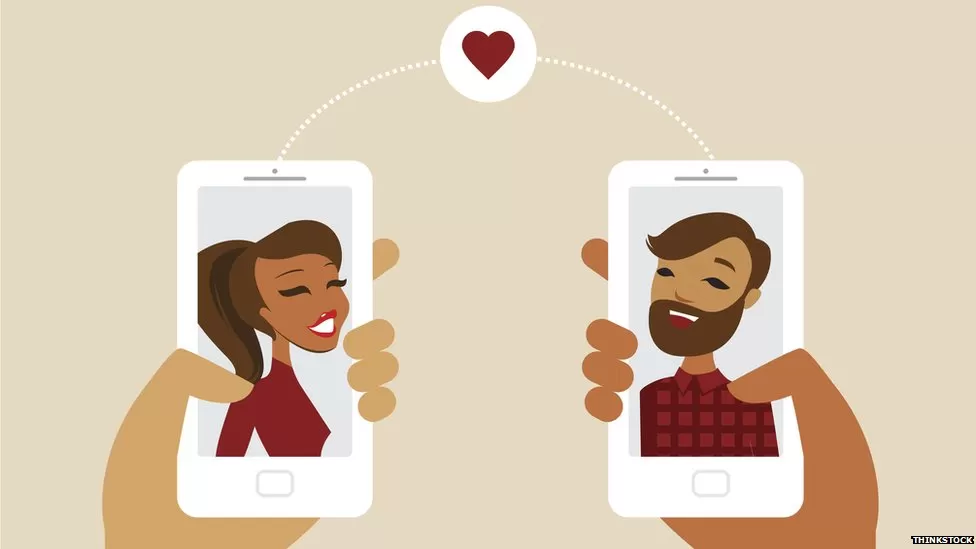
Let’s get loved up, after all, it is cuffing season
I’m a firm believer that any good person can find love, and that includes people with disabilities. I should know, I found my true love at 22 with the help of a dating site called OkCupid. My name is Miranda and I was born with Cerebral Palsy; I have to use a wheelchair to get around.
With the right attitude and precautions, the Internet can be a powerful tool for helping people with disabilities find love. I’m not saying everyone with a disability should use the online method, I’m sure plenty of disabled people have found a partner without it. However, if you’ve exhausted all avenues in the real world, online dating apps and websites are a lucrative option.

My Story
Throughout my dating life, I have found partners both online and offline. The majority of them were online. Why? I just find it easier that way. If someone viewed my dating profiles, they saw up front that I am disabled and can decide for themselves if they want to proceed.
I have had people in real life find me attractive, but they couldn’t deal with a disability, and that’s valid. I’ve also had people claiming they “missed out” on me because they didn’t know how to proceed with the Cerebral Palsy. And, to them, I say, “I’m sorry. I’m sure you’ll find your match.”
Online dating profiles take out all the guesswork. If you want to give me a shot, send a message; if you don’t, move on to the next profile. My partner took a chance on me in June of 2012.
The first thing that caught my attention about his message to me was that it wasn’t creepy. Disability or not, all women have dealt with their fair share of creepers online. I’ve gotten gems like “you’d look good in a bikini,” or my favorite, “I’ve always wanted to make it with a girl in a wheelchair.” That one made me shutter.
His simply said, “Hi, I think you’re really cute, and I would love to get to know you better.” Short, sweet, and to the point. My man is sometimes a man of little words.
I clicked on his profile, and it was pretty bare. It only said, “I hate writing these things. Message me if you want to know more.” I was a little turned off by that. As a writer, I’m a sucker for a good communicator, and my own profile was novel-length by profile standards. However, his message seemed so genuine that I couldn’t ignore it.
We ended up swapping phone numbers and starting to communicate by texts and calls. After a month of this, we set a date to meet in person. Did sparks immediately fly? Haha. No way.
The Meeting
The thing about me is that I get nervous around people I find attractive. And, I found him very attractive. The man didn’t even bat an eye when I asked him if I could bring a friend to the first meeting. I think all women should do this, especially those with disabilities. It’s a safety net. He even brought a couple of friends along so I wouldn’t have to feel awkward about needing someone. What a guy!
This may not feel like a big deal to some, but I had a guy go off on me once for not wanting to go alone to a bar with him. We had only met once prior! My alarms went off, and I certainly dodged a bullet after he tore me a new one for it.
Unfortunately, the first meeting didn’t go well because I clammed up. But, here’s the thing, if someone is really into you, they will make it known. He didn’t give up after that. He suggested we meet up in a more intimate setting to really get to talk. With my grandmother present, I invited him over to my apartment, and the sparks flew!
He was very kind and polite when my Gram would pop out of her room to talk to us. We bonded over Disney movies and musicals and had a great time! Ten years later, I’m living with him, and he is an amazingly loving and kind partner that helps me when I need him. I couldn’t ask for anyone better!
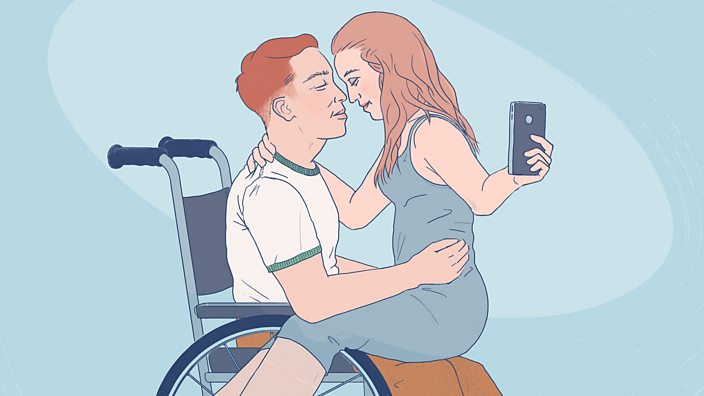
Conclusion
What I want others with disabilities to take away from this are a few things. Try online dating if you haven’t found what you’re looking for in the real world. It might work out for you, or it might not. What matters is that you gave it a try.
If you try the online route, don’t automatically dismiss a lacklustre profile. If I had done that, I would have never gotten all of these happy years. Give them a chance if they send you a genuine message that shows you they are into YOU and not what they can DO with you.
Finally, the sparks don’t always hit on the first meeting. After my experience with my partner, I usually advise people to give it a couple of dates before they decide to move further. Some people are overwhelmed during the first meeting and may do better the second time. I’m sure glad he stuck with me!
Please remember that your disability doesn’t define you. You are worthy and capable of receiving and giving love. It just may take a while to find it. We’re all in the same boat in that respect.

Featured
Seven Supermarket Chains Under Fire for Introducing Inaccessible Fridges

In a push for innovation and energy efficiency, seven major supermarket chains including, Aldi, Asda, Lidl, Morrisons, Sainsbury’s and Tesco have introduced new fridges across their stores. While the rollout is being celebrated for its potential to reduce environmental impact, the move has sparked a backlash from the disabled community, who argue the design disregards accessibility needs.
Many disabled shoppers report that these designs create significant barriers for people with mobility impairments, visual impairments, and other disabilities.
Key Accessibility Concerns
- Heavy or Complex Doors
Some of the fridges feature heavy sliding doors or mechanisms requiring significant dexterity or strength. For those with arthritis, muscular disorders, or limited upper body mobility, opening the doors becomes an impossible task. - Crowded Layouts
Reports from disabled shoppers also highlight how narrow aisles and tightly packed fridge layouts exacerbate the problem, making it difficult for those using mobility aids to maneuver around these installations.
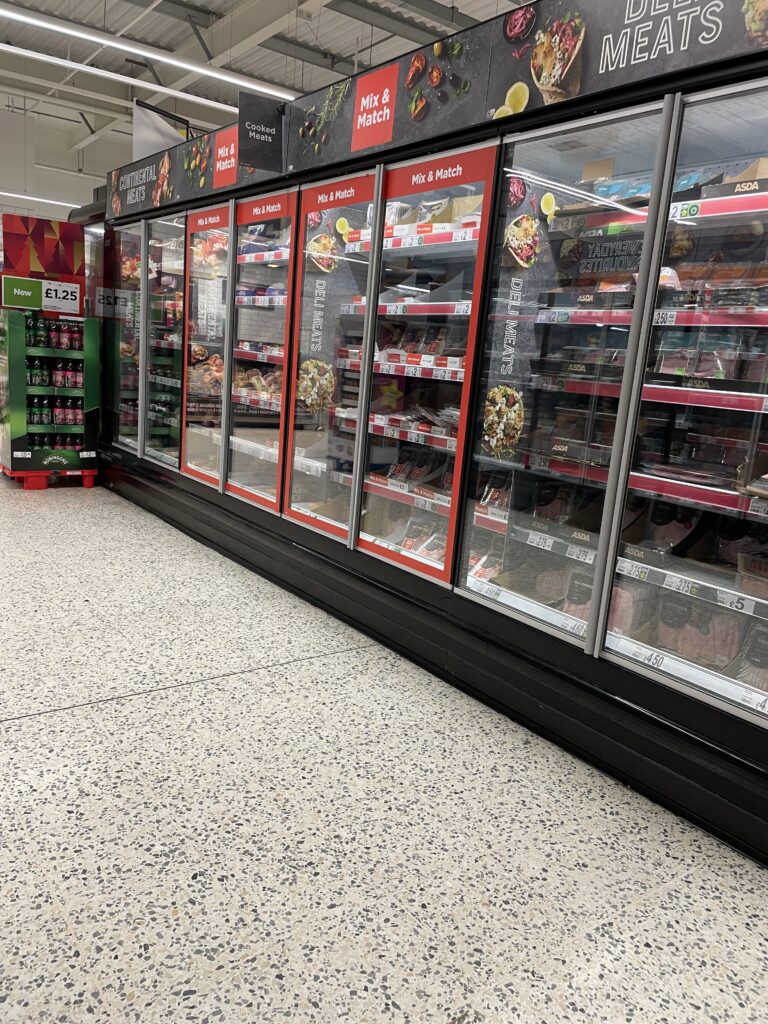
Impact on Disabled Shoppers
Disabled shoppers have expressed frustration, describing the rollout as a step backward in the fight for inclusion. Sarah Johnson, a wheelchair user and disability advocate, shared her experience:
“It’s demoralizing. I used to shop independently, but now I need help with basic things like getting a carton of milk. These designs weren’t made with people like me in mind.”
Others have voiced concerns about the message this sends. Activist Marcus Wong commented:
“These inaccessible fridges highlight a broader issue in retail: a failure to consult the disabled community during design processes. Inclusion needs to be part of the blueprint, not an afterthought.”
Supermarkets’ Response
Some supermarket chains have issued statements defending the changes. A spokesperson for one chain said:
“The new fridges are part of our commitment to sustainability and energy efficiency. We’re actively seeking feedback to ensure they work for all customers.”
However, critics argue that this response lacks urgency. While environmental considerations are crucial, they contend that accessibility shouldn’t be sacrificed for progress.
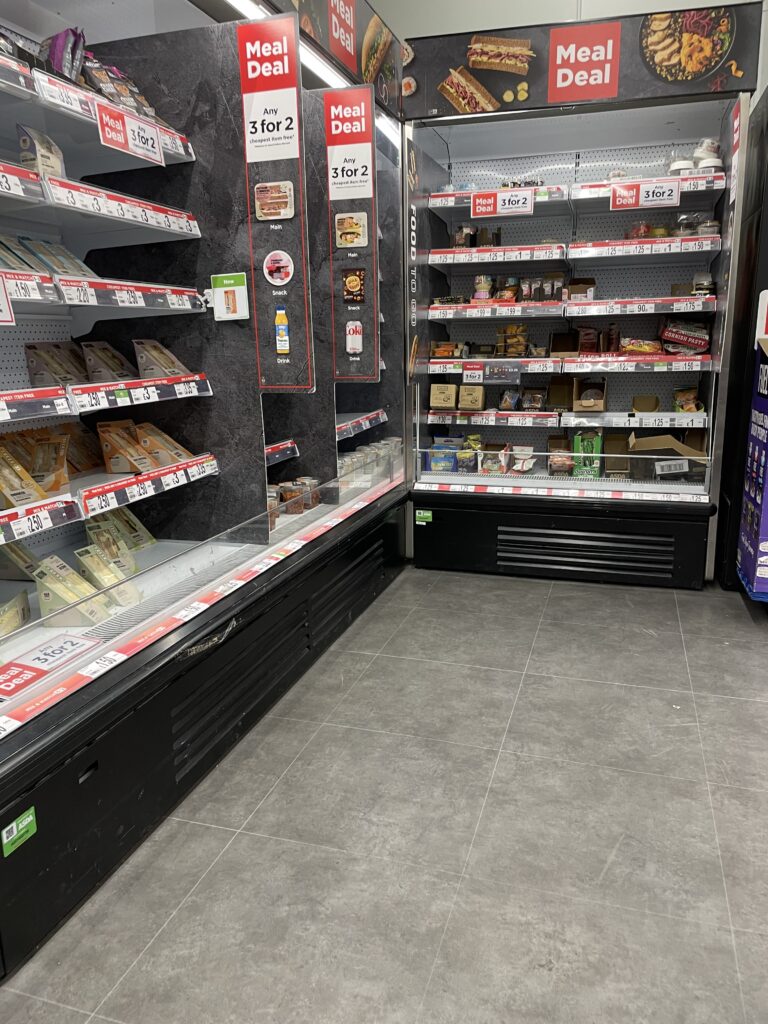
Calls for Action
Disability advocates are urging supermarkets to take immediate steps to address these barriers. Key recommendations include:
- Consulting with disabled shoppers during future design processes.
- Implementing universal design principles to ensure fridges are accessible to all customers.
The issue also highlights the importance of adhering to accessibility laws, which often mandate equal access to goods and services.
Conclusion
The introduction of inaccessible fridges by seven major supermarket chains underscores a growing tension between technological innovation and inclusivity. While strides in sustainability are important, they must not come at the cost of excluding disabled shoppers. As calls for accessibility reforms grow louder, the spotlight is on these supermarkets to demonstrate their commitment to serving all members of their communities.
Featured
Disability Rights Campaigners Call for Assisted Dying Legislation
Disability rights campaigners are urging MPs and peers to support assisted dying legislation. They emphasize that everyone deserves the chance for a good death. This call is led by Tom Shakespeare, a prominent professor of disability research at the London School of Hygiene & Tropical Medicine.
Supporting Terminally Ill Individuals
The group expresses solidarity with terminally ill individuals who seek the option of assisted death. They acknowledge the concerns raised by opponents regarding the value society places on disabled lives. A documentary titled Better Off Dead? by actor Liz Carr highlights these risks. However, Shakespeare and his co-signers argue that disabled people represent a diverse community. Their experiences and opinions vary significantly.
In a letter to parliamentarians, the campaigners state, “We know some prominent disabled individuals oppose assisted dying. However, polling shows this view is not representative of the majority.” They point to an Opinium poll conducted for Dignity in Dying, indicating that nearly 80% of disabled individuals support assisted dying legislation.
The Right to Autonomy and Control
The letter emphasizes that all individuals deserve a good life and the autonomy to make decisions about their futures. It highlights the importance of independent living. As people approach the end of their lives, they should also have the option for a dignified death, with various choices available.
The campaigners express concern that too many individuals suffer in pain. They argue that assisted dying legislation is a compassionate response to this suffering. The proposed law in the UK focuses on terminally ill, mentally competent adults. This legislation has not expanded in similar laws in Oregon, Washington, and other US states.
Upcoming Legislative Debate
A private member’s bill, introduced by Labour MP Kim Leadbeater, aims to legalize assisted dying for those who meet specific criteria. The bill is scheduled for discussion next month in Parliament. If it receives initial support, it will undergo further scrutiny by committee members.
Although the sentiment for assisted dying legislation may have shifted since the overwhelming rejection in 2015, the outcome remains uncertain. The letter has also been signed by several prominent individuals in the disability rights community, further demonstrating support for this crucial issue.
Election 2024
Voters with Disabilities: Feeling Overlooked in the 2024 Presidential Race

A new Rutgers University report estimates 40.2 million eligible voters in the upcoming U.S. presidential election are disabled. When factoring in people who live with someone who has a disability, nearly one-third of the voting population is involved. Despite this, many voters with disabilities feel overlooked, especially on health care—a central campaign issue.
A Growing Voting Bloc
As the U.S. population ages, the number of voters with disabilities is increasing. However, many challenges still exist. These include inaccessible campaign materials and the fact that candidates like Donald Trump and Kamala Harris rarely address disability-related issues, such as the ongoing impact of COVID-19. Trump recently made comments at a rally that were viewed as discriminatory by advocacy groups.
Advocates Demand Recognition
Dom Kelly, founder of New Disabled South, says this voting bloc is essential. “We are their path to victory,” he insists, warning that ignoring this community could affect election outcomes. Matt Mills, a 41-year-old voter from Ohio who has lupus and other health issues, supports Harris for her health policies but still feels disabled voters are often overlooked.
Mixed Experiences with Candidates
Jim Piet and Patricia Vincent-Piet, a married couple from New Hampshire who both have cerebral palsy, have had varied interactions with political candidates. Some have been receptive, while others have not. Their main concern is policy, especially Medicaid, which provides essential support to people like Jim. They plan to vote for Harris due to fears that Republicans may cut Medicaid services.
Damaging Political Rhetoric
Trump has a history of offending the disabled community, such as when he mocked a disabled journalist in 2015. Recently, he falsely claimed at a rally that Harris was “mentally impaired,” leading to criticism from advocacy groups. Meighan Stone, who uses a wheelchair due to long COVID, emphasizes that the issue goes beyond offensive comments. “We live with this discrimination daily,” she says.
Addressing the Issues
The Harris campaign has taken steps, such as hiring Anastasia Somoza, a disability advocate, as its disability engagement director. Somoza, who has cerebral palsy, has been working to ensure campaign events are accessible, offering virtual options. However, a recent virtual event fell short, causing frustration for voters like Marissa Ditkowsky, who has muscular dystrophy. Technical issues such as missing closed captioning and a sign language interpreter made the event less accessible.
Ensuring Voting Accessibility
The U.S. Election Assistance Commission is working to ensure voters with disabilities can vote independently and privately. Commissioner Benjamin Hovland stresses the need for better training for poll workers. Training will include ways to assist those with anxiety or who process information differently.
Patti Chang, a blind voter from Chicago, explains that exclusion goes beyond the political sphere. “Society needs to expect more inclusion,” she says. “This issue doesn’t just affect voting; it’s everywhere.”
Conclusion
With millions of voters with disabilities preparing to vote, both campaigns need to address their concerns. Making campaign platforms accessible and engaging with these voters could have a significant impact on the election.


